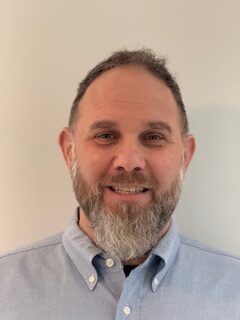It’s immensely valuable to job seekers to hear from executive career coaches what works and what does not in today’s job market. After all, no matter how successful an executive you may be, you’re not a professional job seeker. Things have a way of shifting dramatically when sitting on the other side of the table. ExecuNet’s career strategists work every day with members to help them with all aspects of their search. Our strategists help with resumes, cover letters, developing value propositions, identifying target companies and networking contacts, video and in-person interviewing skills, networking skills, onboarding, and even with ongoing in-role advising.
Susan Blazer, one of ExecuNet’s career strategists, shared her thoughts on resume related challenges executives face in their job search.
Q.) What do you wish senior-level executives understood about their resume?
Susan: The role of the resume is to get you noticed and invited in for an interview. But how will you get noticed amongst the hundreds of applicants for a particular position? The resume today needs to be more than a historical document of where you’ve been and what you’ve done. It should be a marketing document that brands you, pre-packages you and pre-sells you. It should describe your desired role, industry, niche within the industry, and key descriptors that are important to you. When developed as a marketing document, it can put you significantly ahead of the other candidates.
Q.) What are executive recruiters and hiring managers really looking for in the resume?
Susan: It’s a buyer’s market from the employer’s perspective. You are competing against people who do not currently have a job and you are competing against people who do have a job, but are seeking their next career move due to mergers, change in strategy, change in leadership, no upward mobility, etc. Recruiters have told us that they spend less than 30 seconds to look at your resume, and if you do not differentiate yourself, they will not read further. They want to understand what your unique future value is to an organization in the opening paragraph. Next, they want to see three to five accomplishments with metrics, and then they want to see 12 to 14 competencies/key words. Then they want to understand your story of where you’ve been and what you’ve done. If you do all that, chances are you will be invited in for that interview.
Q.) How should job seekers position gaps in their employment history when they make their resume?
Susan: Gaps can be a problem. Employers understand what the economy has been like the last several years and that even excellent executives were out of work. Now with the pandemic, there is even more downsizing occurring. However, you don’t want to appear to have been idle when not employed. You want to fill those gaps with your story so the reader doesn’t make their own assumptions as to why you have gaps and what you may or may not have done during that time period. Often, one can position those gaps with independent consulting engagements, personal leave due to (now resolved) family health issues, participating in educational courses, or some entrepreneurial initiatives they have participated in. One executive I worked with used a managed leave of absence in which he was involved in a couple of start-ups to explain his gaps.
Q.) How do you advise executives who are over 50 to overcome age bias?
Susan: This topic always reminds me of something I once heard: “The way in which we think of ourselves has everything to do with how our world sees us.”–Arlene Raven
Don’t get in your own way! You have a lot to offer. Recognize your assets and the value of what you bring to the table. Become a career entrepreneur. Think of the process differentiating yourself and your expertise to another organization. After doing your homework on the organization, highlight that you bring functional expertise, a global perspective, recognition of obstacles and opportunities, the ability to deal with crises, solid accomplishments and the ability to work with people of all generations. Show who you are in a way that makes them see you as a potential asset. Have marketing materials that brand you, pre-package and pre-sell you so that you and your accomplishments stand out. Don’t worry about hiding your age on your resume. You can downplay age a bit by listing only your last 20 years and chunking your experience into sections – but it’s so easy to determine age today that trying to hide it is not a good idea.
Target smaller companies and those with leadership close to your age. Companies like that are much more open to people who can address their pain-points… regardless of their age.
Identify your market niche and target those companies where you have experience and contacts. This is vital. At your level, the first contact should not be the resume; it should be a trusted mutual contact.
Update your social media profiles with the correct search terms, protocol and an engaging message. Engage your network. That’s where 60 to 65 percent of your opportunities will come from. Make sure your profile is optimized for the search engines. With the pandemic, online marketing has become significantly more important.
Get in shape – mentally, physically and emotionally. Emphasize your strengths and who you are. Be open to taking on contract, project or consulting opportunities which may lead to an offer of a full-time position… and please avoid using words like “seasoned” and “experienced” on your resume.
Q.) What do you suggest executives do to ensure their resume doesn’t fall between the cracks and is considered by a prospective employer?
Susan: Use social media and your networking contacts to identify someone you know (or more than one person) who can present your resume and/or follow-up on your behalf with the hiring manager so that when they see your resume, two or three people have already mentioned your name. It may not even be a first-level contact, but a second or third level contact who can introduce you. Nothing is better than having trusted mutual contacts vouch for you before interviewing even starts. Be prepared for video interviews which are more the rule than the exception these days. Your contact opening the door and on-point personal marketing materials will get you in the door. From there it’s up to you to close the sale.
Need help telling your story? ExecuNet’s Career Strategists can make the difference in all aspects of your job search… and beyond. Get the help you need and the job you deserve.







